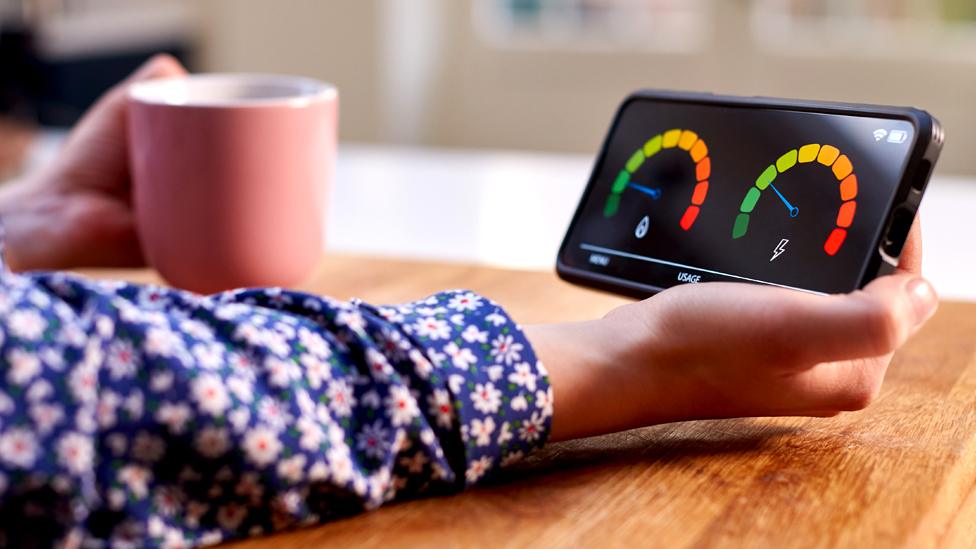'Rise in Muslim families' seeking Ramadan food help
- Published
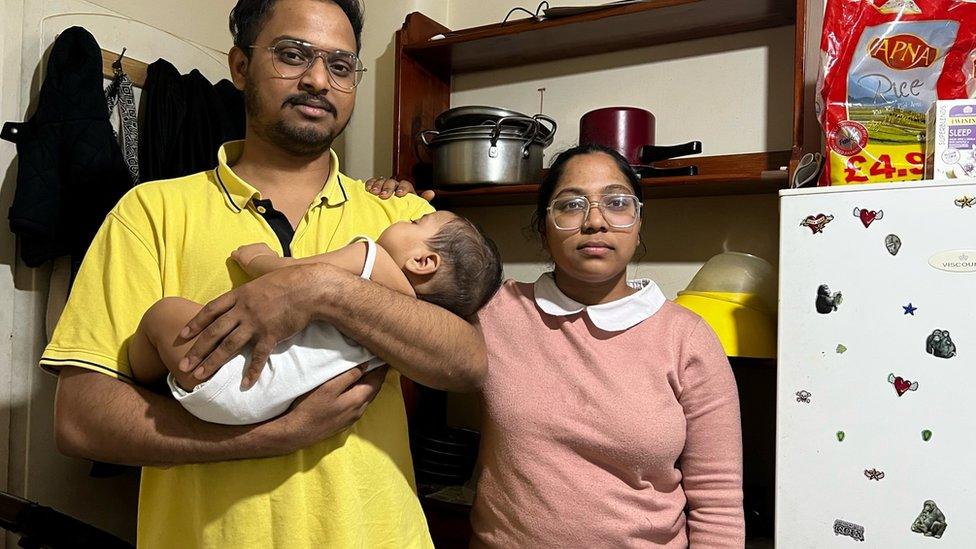
Arshi Begum and her husband are struggling to manage due to the UK's soaring cost of living
As Ramadan, Islam's holy month of fasting and prayer, comes to a close this Sunday, charities say many Muslim families have struggled to afford food to break their fasts.
Surges in fuel, energy and food prices have hit the pockets of people of all backgrounds, with inflation running at a 30-year high.
The charity Trussell Trust, which runs more than half of UK food banks, handed out 2.1 million food parcels in 2021-22 - of which more than 830,000 went to children.
This Ramadan is the first in two years in which Muslims have been able to break their fasts with others, now most Covid restrictions have ended.
During Ramadan, Muslims eat twice a day - once before the sun rises, and once when the sun sets.
In the evening, they are encouraged to eat iftar dinners with extended family, friends and members of their community.
But the rising cost of living has meant many have been struggling to feed their immediate families - making hosting larger iftar dinners particularly difficult.
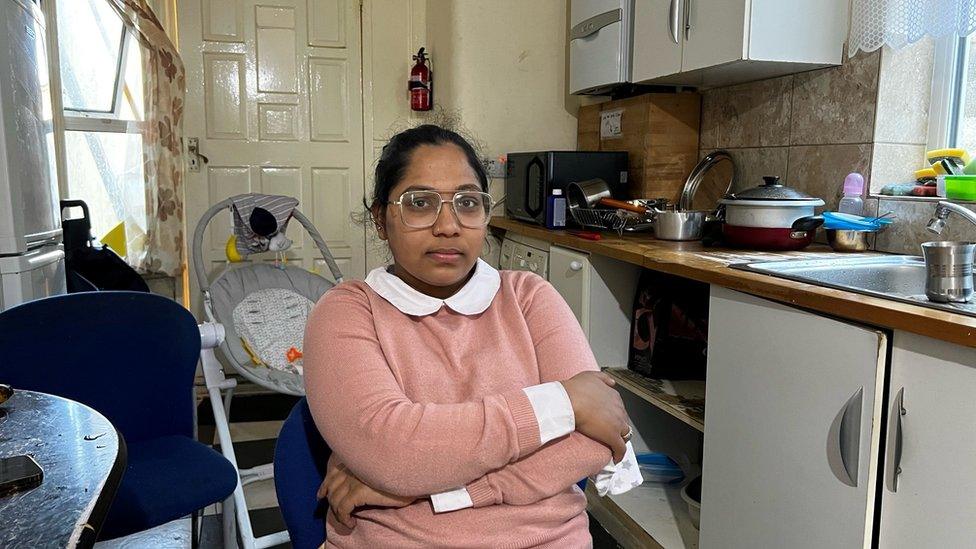
Arshi says she regularly uses her local food bank for staple foods and baby items
Arshi Begum, who lives in East Ham, in east London, with her husband and six-month-old son, regularly uses her local food bank to get staples like basmati rice, chapati flour and meat - as well as milk and nappies for their baby.
She tells the BBC: "If it wasn't for food banks, I would not have any food to open my fast, apart from water, some days.
"Using the food bank helps us save at least £100 a week, which we can put towards other essential items."
Arshi and her husband had to move out of their own home and are currently living in shared accommodation.
They both work, but once they have paid their rent and household bills, they say they have barely any money for food.
"Last Ramadan, we were living in our own home and we had three courses for [our iftar dinner]," she explains. "That is just a dream now."
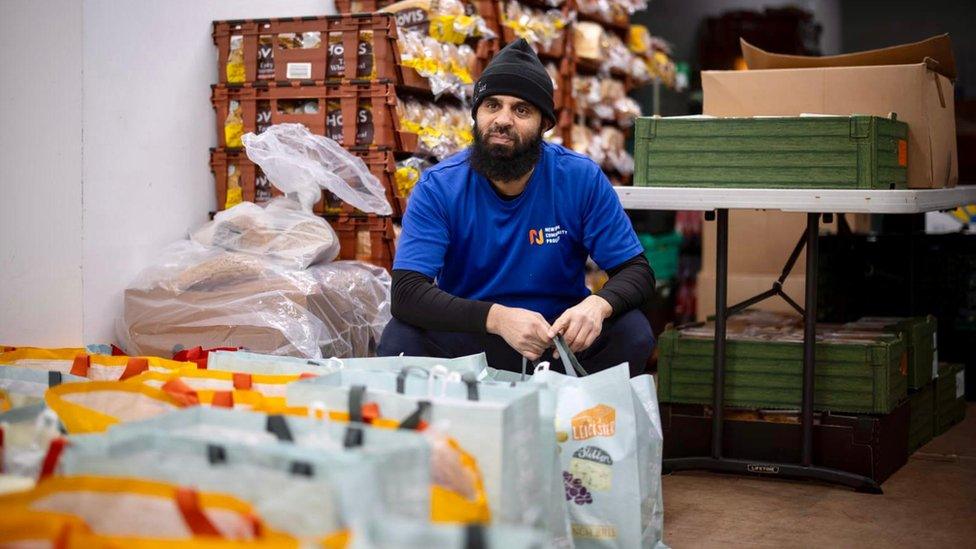
The Newham Community Project's food bank provides support for families like Arshi's
Several local charities have told the BBC their services have seen a rise in demand in Muslim users this Ramadan.
The National Zakat Foundation, which distributes zakat - a charitable donation Muslims must make each year - to Muslims in need across the UK, said it had received 1,746 applications for assistance this Ramadan, compared with 1,053 this time last year.
The charity Islamic Relief has reported a similar demand for its services, with essentials such as meat, rice and flour being provided to Muslim families.
Rifhat Malik, from Leeds-based charity Give a Gift, said this year's holy month is the busiest she has seen.
"We are running four emergency food hubs parallel to each other and we have been delivering over 200 Ramadan food packs weekly." She says this is a 30% increase on the previous year.
The charity has also held weekly iftar sessions during Ramadan to bring together "vulnerable and socially-isolated clients, who have no family or friends, to share the breaking of the fast - so at least [they] receive a culturally appropriate meal and hopefully make new friends".
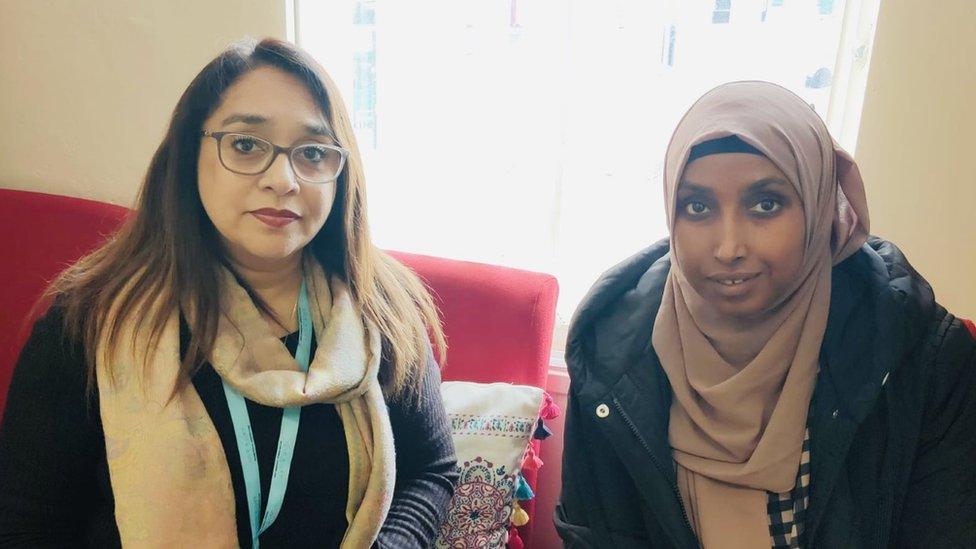
Rifhat Malik from the charity Give a Gift has been supporting Berlin Mirre and her family
Berlin Mirre and her five children, aged between two and 14, are among those to benefit from Give a Gift's support.
Berlin says she has struggled to make ends meet as everyday prices have continued to rise.
"The cost of everything has increased since last Ramadan. The government doesn't give enough money for me to feed five kids."
She receives Universal Credit, one of several benefits to have risen by 3.1% in April - a figure lower than the current rate of inflation.
The financial insecurity has had an effect on her mental health, she says, and she has had to take steps to afford food and clothes for her family - while the charity has provided her with supermarket vouchers and invited her to wellbeing groups.
'Important time of year'
A government spokesperson told the BBC: "We understand that people are struggling with rising prices and that this will be causing concern at an important time of year for Muslim families.
"While we can't shield everyone from the global challenges we face, we're supporting families to navigate the months ahead with a £22 billion package of support this financial year."
Labour's Anneliese Dodds, shadow secretary of state for women and equalities, said: "It's a tragedy that so many Muslim families are struggling this Ramadan to put enough food on the table for their iftar.
"Labour is calling for an emergency budget to tackle the cost of living crisis, with a windfall tax on oil and gas companies to cut up to £600 off bills for families."
Related topics
- Published13 April 2022
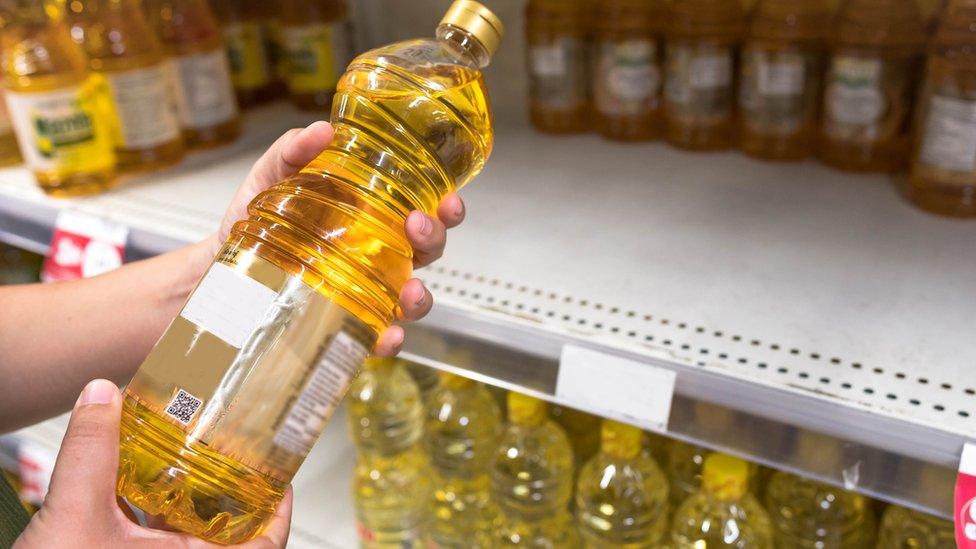
- Published30 March 2022
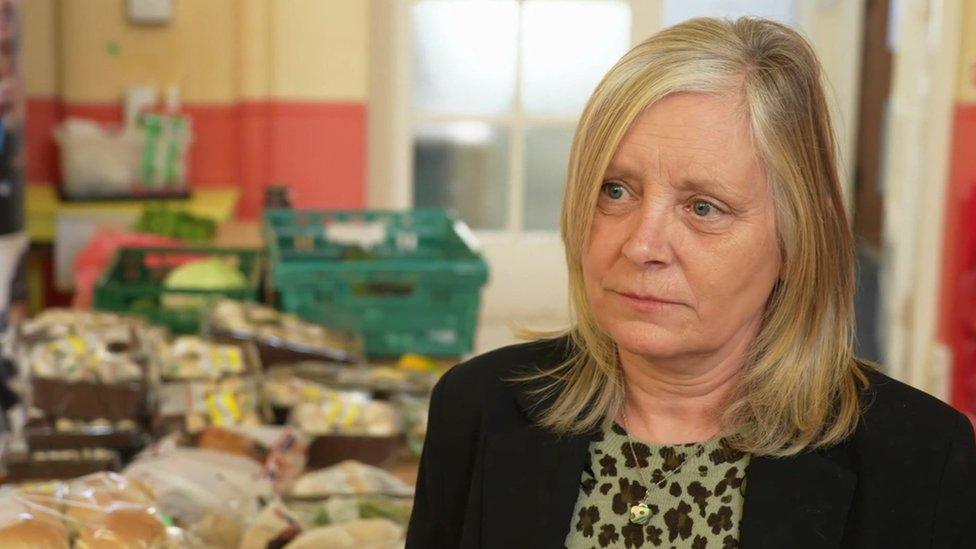
- Published21 January 2022
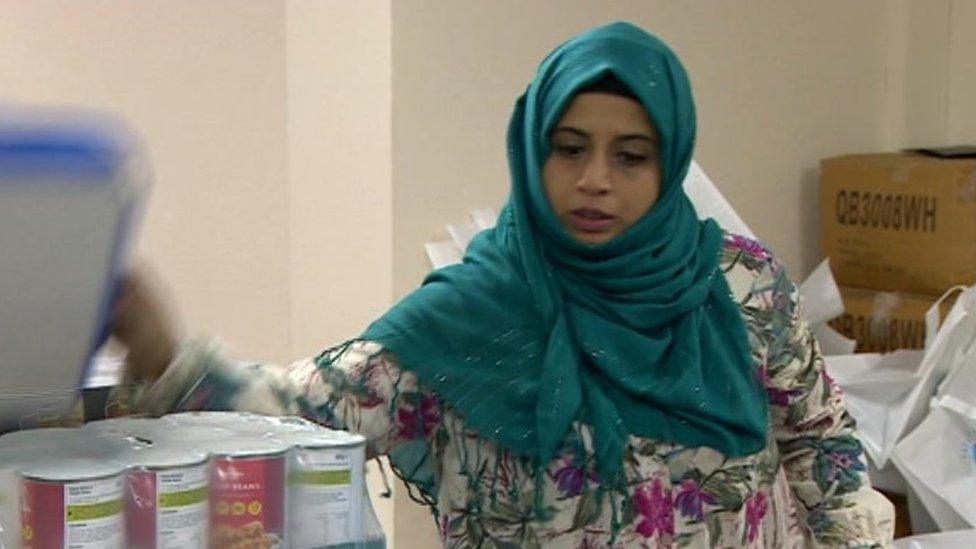
- Published1 April 2022
